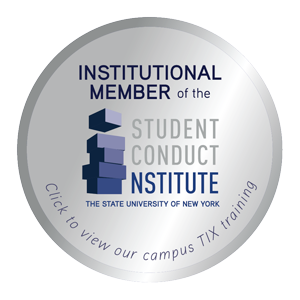
Title IX
Westchester Community College values and respects the self-worth of all individuals in our community and affirms their right to have a safe, nonthreatening, and respectful environment. The College has no tolerance for sexual misconduct and sexual violence of any kind, which includes sexual harassment, stalking, intimate partner violence, and sexual assault.
Community members who have been or know someone who has been the victim of sexual violence, assault, harassment, stalking, domestic/dating violence, or any other form of sexual misconduct are strongly encouraged and employees are required to make a report to the college. Individuals can learn about available options to file a report. Anonymous reports are accepted.
New Title IX Regulations
The U.S. Department of Education’s new Title IX regulations governing how educational institutions respond to sexual assault, sexual harassment, and other forms of sexual misconduct took effect August 14, 2020.
It is important to note that the federal regulations do not apply to all sexual misconduct as it limits the definitions of such behavior and the geographic scope. However, Westchester Community College remains committed to addressing any violations of its policies, even those not meeting the narrow standards defined under the Title IX Final Rule. The college will assess each complaint to determine whether the federal regulations, New York State Education Law 129-B, WCC policy, or any may apply. In short, we will continue to address all complaints regardless of where the alleged conduct occurs. It is also important to note that when the federal regulations do apply, the adjudication process will include a hearing and verbally conducted cross-examination. This is true for both student and employee matters.
